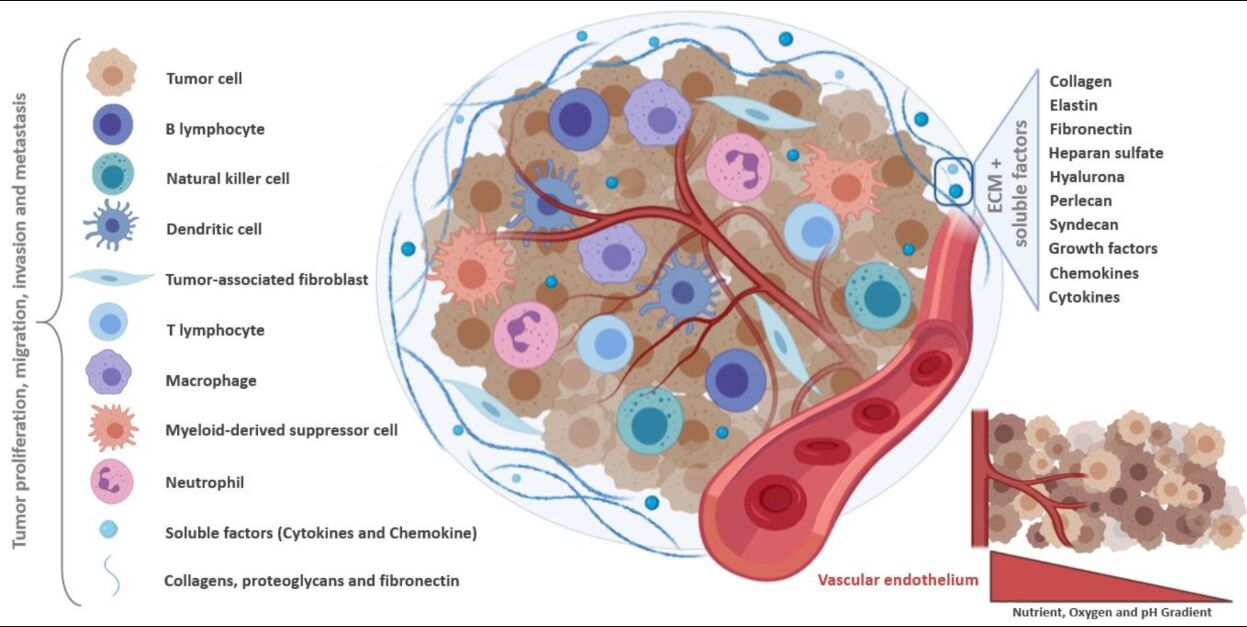Tumor Microenvironment


Tumor microenvironment research is a burgeoning field in cancer biology that investigates the complex ecosystem surrounding cancer cells within a tumor. This dynamic environment comprises various cell types, extracellular matrix components, blood vessels, and signaling molecules, all interacting to influence tumor growth, progression, and therapy response.
One key aspect of tumor microenvironment research is understanding the tumor stroma, which includes fibroblasts, immune cells, and endothelial cells that form blood vessels. These stromal components provide structural support to the tumor and produce signaling molecules that promote cancer cell survival and proliferation.
Immune cells, such as T cells, macrophages, and natural killer cells, play a pivotal role in the tumor microenvironment. Researchers examine how these immune cells can either inhibit tumor growth (immunosurveillance) or become co-opted by cancer cells to support their survival and evade the immune system (immunoediting).
Blood vessels within the tumor microenvironment are crucial for delivering nutrients and oxygen to cancer cells. However, they can also facilitate metastasis, the process by which cancer spreads to other parts of the body.
Furthermore, tumor microenvironment research delves into how extracellular matrix components and signaling molecules like growth factors and cytokines impact cancer cell behavior. These elements can create a supportive niche for cancer cells, contributing to therapy resistance.
Studying the tumor microenvironment is essential for developing novel cancer treatments. Targeting specific components or disrupting interactions within this microenvironment has the potential to inhibit tumor growth and improve therapeutic responses. It also provides insights into why some cancers become resistant to treatment and how immunotherapies can be enhanced to overcome these challenges. In essence, tumor microenvironment research offers a deeper understanding of the intricate interplay between cancer cells and their surroundings, paving the way for more effective cancer therapies and personalized treatment approaches.








